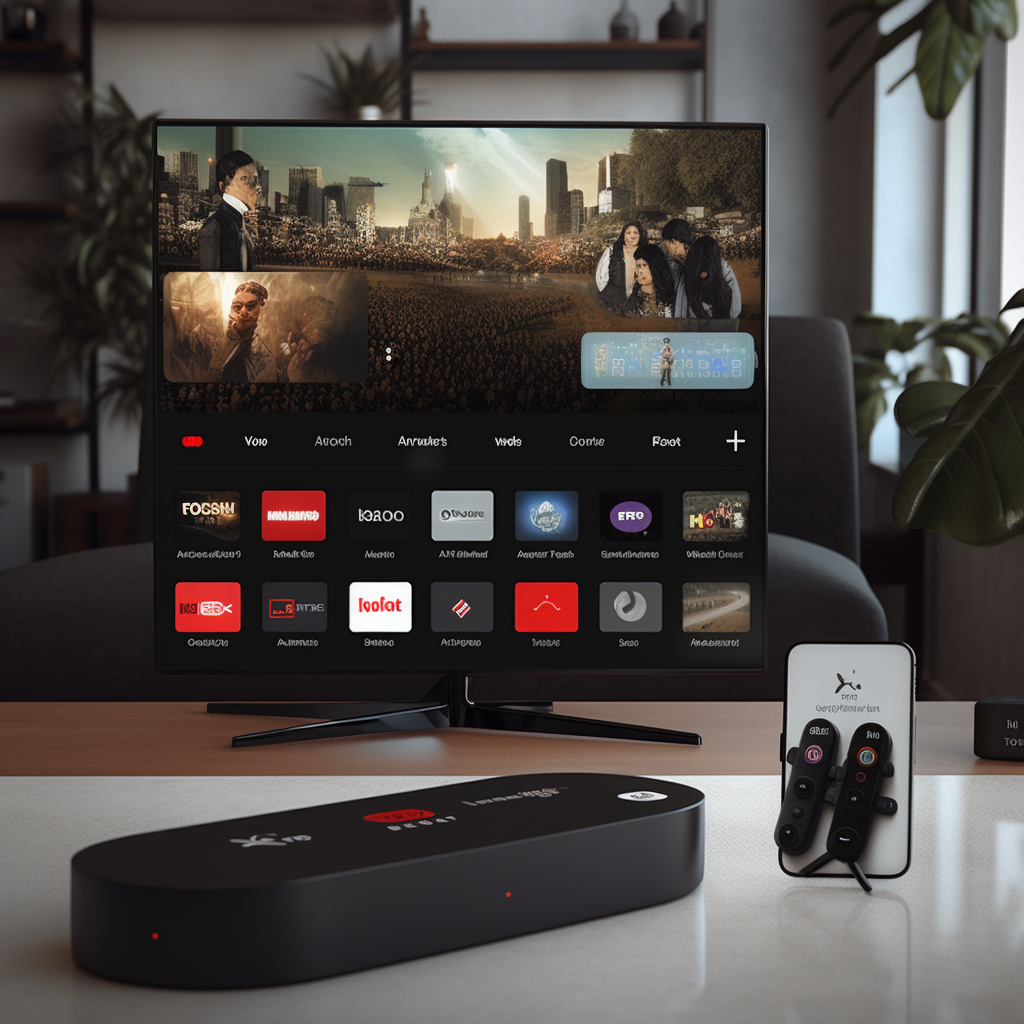A Comprehensive Guide to Finding the best iptv providers in 2024

Introduction
Did you know that over 1 billion people worldwide now access television content through internet streaming rather than traditional cable or satellite? The landscape of home entertainment has fundamentally shifted, with best iptv providers leading this revolution in how we consume media. Internet Protocol Television (IPTV) services deliver television content via internet connections, offering unprecedented flexibility, diverse content libraries, and often at a fraction of the cost of conventional TV packages. This comprehensive guide will navigate you through everything you need to know about selecting the best IPTV service for your entertainment needs in 2024.
What to Look for in IPTV Services
When evaluating IPTV providers, several key factors determine whether a service will meet your specific needs:
- Content Library Size: The number and variety of channels offered
- Streaming Quality: HD, Full HD, or 4K resolution options
- Device Compatibility: Support for your preferred viewing devices
- User Interface: Ease of navigation and content discovery
- Reliability: Uptime percentage and stream stability
- Customer Support: Availability and responsiveness
- Pricing Structure: Monthly costs and contract requirements
- Legal Compliance: Operating within copyright and broadcasting laws
The best services excel across these categories while providing value that aligns with your viewing habits and budget constraints.
Timing Considerations
Subscription Duration Options
Most reputable IPTV services offer flexible timing options to accommodate different user needs:
- Monthly Subscriptions: Typically ranging from $10-20 per month
- Quarterly Plans: Often providing 10-15% savings compared to monthly rates
- Annual Subscriptions: Usually offering the best value at 20-30% discount from monthly pricing
- Free Trials: Many providers offer 24-48 hour trials before committing
According to recent market data, the average IPTV subscriber maintains their service for approximately 14 months before reassessing options, making quarterly or bi-annual plans particularly popular choices for balancing flexibility and value.
Step-by-Step Guide to Choosing an IPTV Provider
Step 1: Determine Your Content Priorities
Begin by listing the channels, genres, and specific programming that matter most to you. Are you primarily interested in sports, international channels, or on-demand movies? Different providers excel in different content categories.
Step 2: Assess Device Compatibility
Identify which devices you’ll use for viewing, such as smart TVs, streaming boxes, mobile devices, or computers. Ensure your chosen provider offers dedicated apps or compatibility with your preferred viewing platform.
Step 3: Test Before Committing
Take advantage of free trials or money-back guarantee periods to thoroughly test service quality, interface usability, and content availability before making a longer-term commitment.
Step 4: Research Reliability and Support
Check user reviews focusing specifically on uptime, stream stability during peak hours, and responsiveness of customer support channels when issues arise.
Step 5: Compare Value Rather Than Just Price
Consider the cost-per-channel or cost-per-viewing-hour rather than just the monthly fee. A slightly more expensive service might deliver substantially more value in content quality, reliability, and features.
Technical Information
The technical performance of IPTV services depends largely on:
- Minimum Internet Speed Requirements: Most services require at least 25 Mbps for HD streaming and 50+ Mbps for multiple simultaneous streams or 4K content
- Buffering Frequency: Quality providers maintain buffer rates below 5% during peak usage
- Server Locations: More distributed server networks generally provide better streaming performance
- Encoding Quality: Higher bitrates produce better image quality but require more bandwidth
According to streaming technology studies, users typically notice quality degradation when bitrates fall below 3.5 Mbps for HD content, making this a key technical threshold for satisfactory viewing experiences.
Legal Alternatives to Consider
Many completely legal streaming options provide excellent alternatives to traditional IPTV:
- IPTV Services from Traditional Broadcasters: Many networks now offer their own streaming platforms
- Aggregator Services: Services that bundle multiple streaming sources into unified interfaces
- Free Ad-Supported Platforms: Legal services that provide free content with advertising support
- Public Broadcasting Options: Many government-funded channels offer free streaming options
These services generally offer fewer channels than comprehensive IPTV packages but provide guaranteed legal compliance and often superior reliability.
Common Mistakes to Avoid
When selecting IPTV providers, watch out for these common pitfalls:
- Prioritizing channel quantity over quality – many services boast thousands of channels but deliver poor streaming quality
- Ignoring geographical restrictions that might affect content availability
- Overlooking customer support quality until problems arise
- Committing to lengthy contracts before thoroughly testing service quality
- Failing to verify legal compliance of services, potentially exposing yourself to liability
Optimizing Your IPTV Experience
Once you’ve selected a provider, maximize your viewing experience by:
- Using ethernet connections instead of WiFi when possible
- Investing in a quality streaming device with sufficient processing power
- Setting up proper DNS configurations to improve streaming performance
- Creating custom channel lists to streamline navigation
- Scheduling regular router restarts to maintain network performance
Conclusion
Finding the right IPTV provider requires balancing content preferences, technical capabilities, legal considerations, and budget constraints. The landscape continues to evolve rapidly as traditional broadcasters adapt to streaming environments and new players enter the market. By following the guidelines in this comprehensive overview, you’ll be well-positioned to select a service that delivers exceptional entertainment value while avoiding common pitfalls in the IPTV marketplace.
FAQs
Q: How much should I expect to pay for a quality IPTV service?
A: Legitimate services typically range from $10-25 monthly, with premium services offering more extensive libraries and better reliability toward the higher end of that range.
Q: Can I use IPTV services on multiple devices simultaneously?
A: Most providers offer multi-connection options, typically allowing 2-4 simultaneous streams depending on your subscription tier.
Q: What equipment do I need to get started with IPTV?
A: At minimum, you need an internet connection, a compatible device (smart TV, streaming box, computer, or mobile device), and a subscription to an IPTV service.
Q: Are free IPTV services worth trying?
A: Free services generally offer significantly lower reliability, limited content libraries, and may involve legal risks or security concerns that premium services avoid.
Q: How can I determine if an IPTV service is operating legally?
A: Legal services typically have proper business registration, transparent terms of service, legitimate payment processes, and direct licensing relationships with content providers or distributors.

